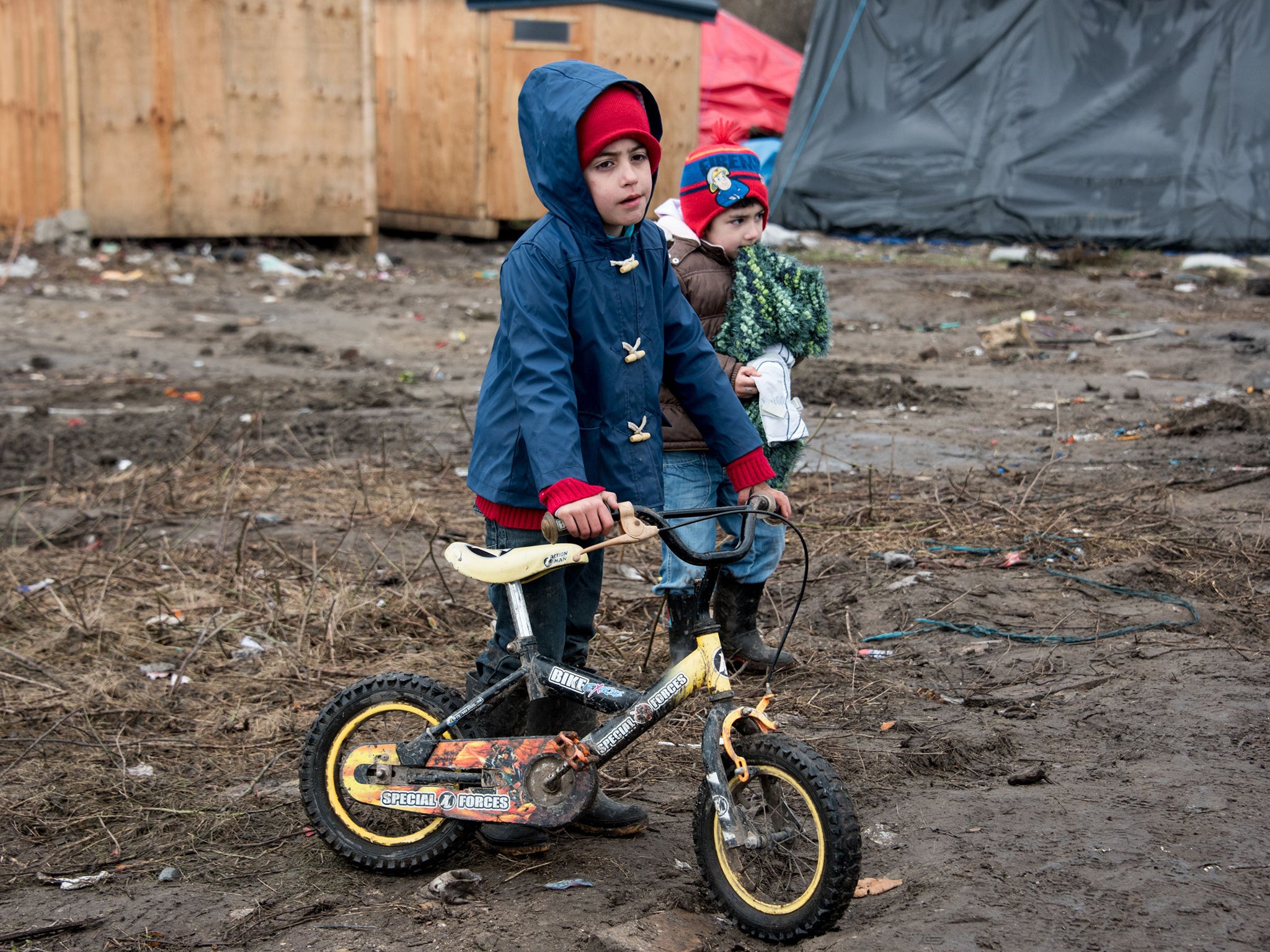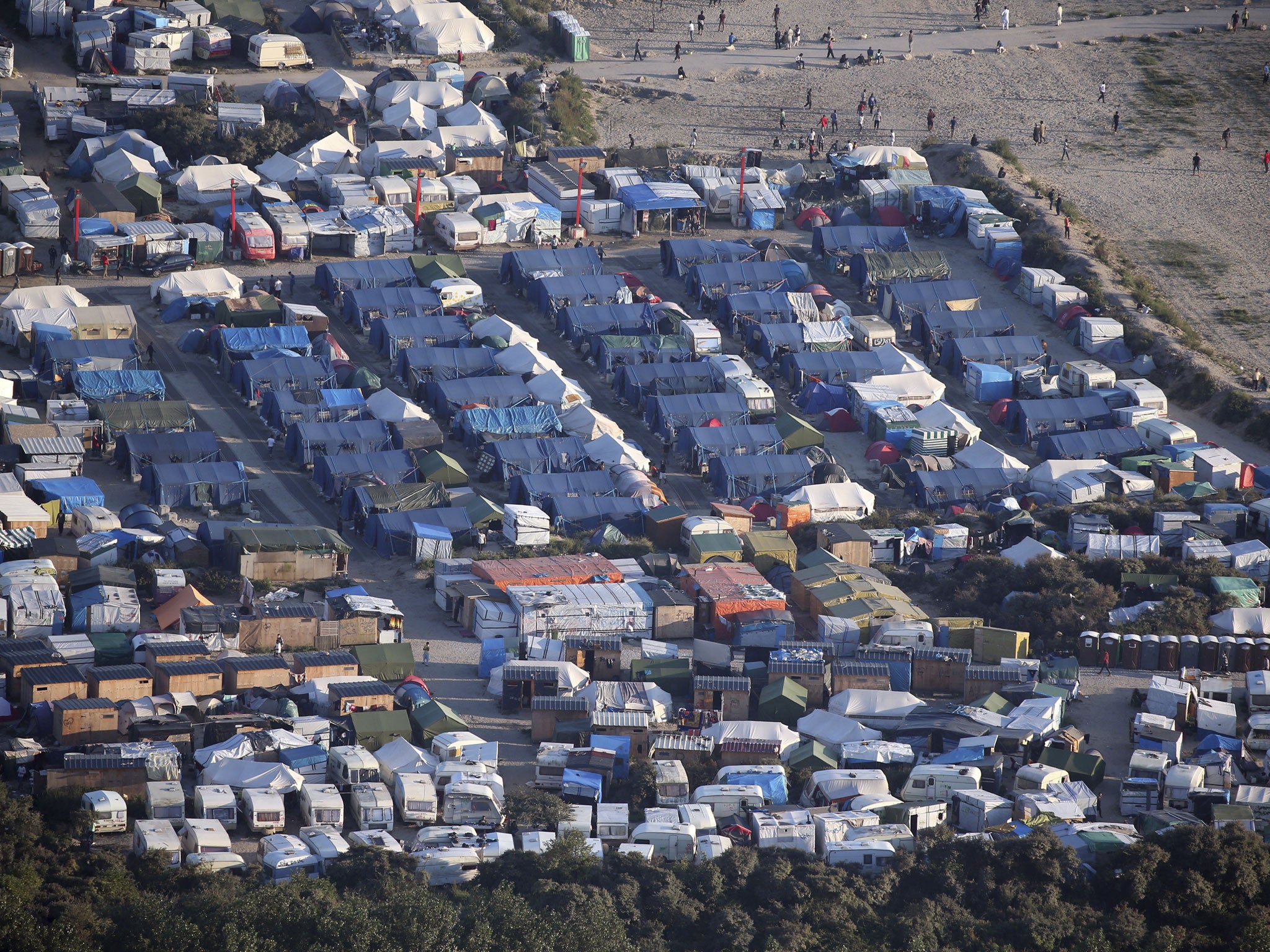British government bureaucracy is forcing children to stay in the Calais Jungle, charity says
British Red Cross says it has found failures at 'almost every point' in the process

Your support helps us to tell the story
From reproductive rights to climate change to Big Tech, The Independent is on the ground when the story is developing. Whether it's investigating the financials of Elon Musk's pro-Trump PAC or producing our latest documentary, 'The A Word', which shines a light on the American women fighting for reproductive rights, we know how important it is to parse out the facts from the messaging.
At such a critical moment in US history, we need reporters on the ground. Your donation allows us to keep sending journalists to speak to both sides of the story.
The Independent is trusted by Americans across the entire political spectrum. And unlike many other quality news outlets, we choose not to lock Americans out of our reporting and analysis with paywalls. We believe quality journalism should be available to everyone, paid for by those who can afford it.
Your support makes all the difference.Unaccompanied refugee children eligible to come to the UK are beng forced to stay in the Calais "Jungle" because Theresa May's government is not processing the children fast enough and refusing to respond to the French Government.
The British Red Cross report found failures at "almost every point" in the process of reuniting unaccompanied refugee children with their families in the UK.
Of the approximately 1,000 unaccompanied children in the makeshift camp in northern France, the charity said 178 have been identified so far as having family ties to the UK which makes them eligible to claim asylum in the country under the terms of the Dublin agreement.
But despite this fewer than 20 children were granted asylum in the UK in the first three months of 2016.
The charity found that it takes between 10-11 months on average to bring a child to the UK due to problems ranging from basic administrative errors to a shortage of staff to facilitate transfers on the French side of the border.
Problems include a drop-in service set up by the French government becoming so oversubscribed that child refugees are now forced to wait three months for an appointment to record their name, parents and details of their journey to France.
This is exacerbated by a lack of translators avaliable at the camps and the administrators required by French law not being avaliable to take photographs and fingerprints and photograph documents. If a refugee misses their appointment due to one of these factors it is a six week wait for another avaliable slot.
One case reported by the charity found a teenager was rejected because administrators filed his request under the wrong article of the Dublin agreement.

The charity has also accused the government of ignoring France's formal "take charge" requests on pedantic grounds such as one child who rejected after the application for his movement to the UK was wrongly sent to a local council rather than the Home Office.
In other instances officials claimed they had "misplaced" requests from their counterparts over the English Channel.
The Red Cross has called on the UK government to do more to help young child refugees, highlighting reports that at least three children have died trying to make their own way across while waiting for their cases to proceed.
Alex Fraser, the Director of Refugee Support, said: “Right now, the system for transferring children who have a right to be in the UK has numerous problems.
“Children, who could be rebuilding their lives in safety with their only surviving relatives, are instead being left to fend for themselves in conditions unimaginable to most adults.”
He said the issue is becoming even more critical as the French government is expected to begin demolishing the camp by the end of the month and redistributing refugees to migration centres across the country.
“We need urgent action from both the UK and French governments. Children with a legal right to be here should be on the Eurostar across the Channel, not being dispersed somewhere else in France, with no idea when they can join their family”, he said.
It comes after senior figures from the Christian, Jewish and Muslim communities in the UK signed an opening letter organised by charity Citizens UK urging Theresa May to accept the child migrants.
The letter labelled the camp a “stain” on the consciences of Britain and France and said the children have ‘‘fled conflict and persecution, are now stuck in northern France, deeply traumatised and at great risk as it is well documented by the anti-slavery commissioner you yourself appointed while Home Secretary’’.
The Home Office told The Independent: “We have made crystal clear our commitment to fulfilling our obligations under the Dublin Regulation and we continue to work with the French Government and partner organisations to identify, assess and transfer unaccompanied refugee children to Britain.
“We have made significant progress in improving and speeding up the existing processes for reuniting asylum seeking children in Europe with family in the UK under the Dublin Regulation, especially since the beginning of the year.
“Over 140 cases of unaccompanied children in Europe have been accepted for transfer to the UK since the start of the year (up to 1st October), with over 80 from France. We are investing heavily in joint working with the French in order to speed up this process even further, but can only operate on the territory of other Member States in accordance with both their domestic law and EU law.”
Join our commenting forum
Join thought-provoking conversations, follow other Independent readers and see their replies
Comments